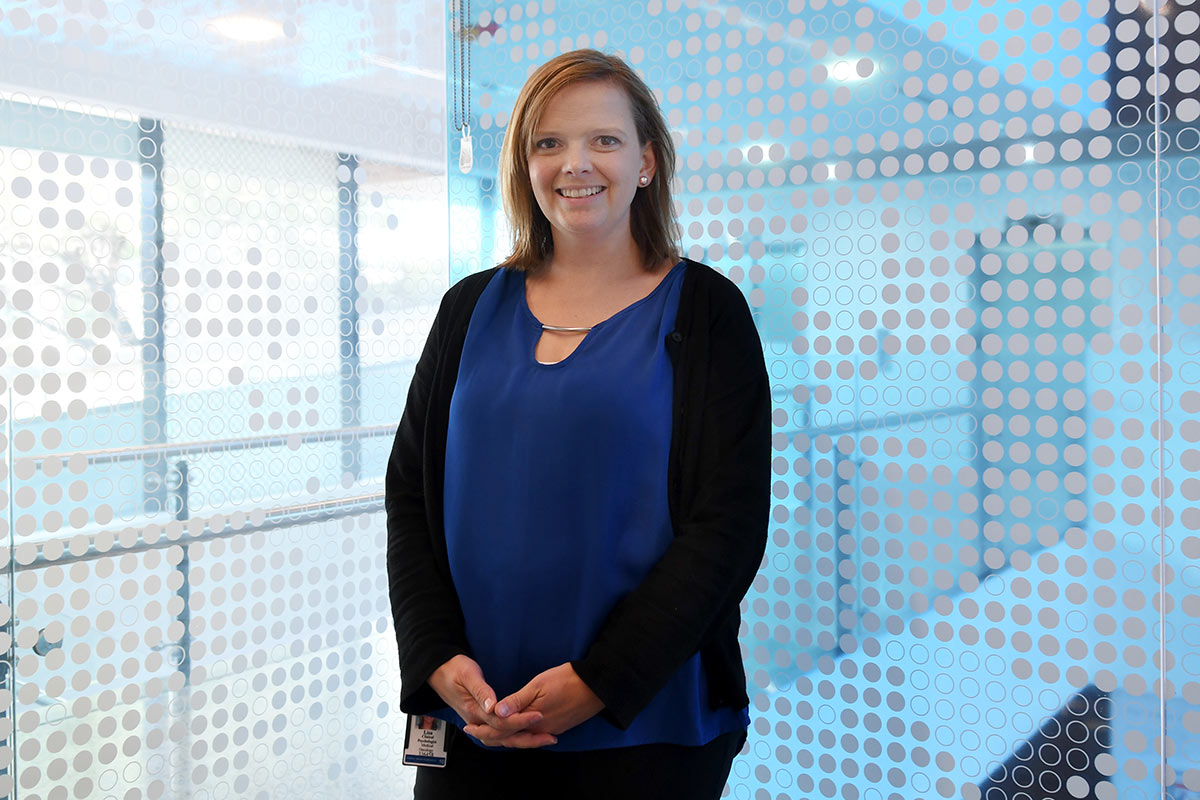
Effective cancer care needs more than medical treatments and should incorporate evidence-based psycho-social interventions, says 2017 South Australian Tall Poppy of Science Dr Lisa Beatty.
With more than one-third of people diagnosed with cancer suffering from significant mental health issues, she says this broader approach to cancer care can greatly improve outcomes.
“Treating mental health concerns such as depression is critical for cancer patient well-being and can improve their ability to adhere to their medical treatments, reduce the severity of their treatment side-effects and cancer symptoms, and to potentially live longer,” the Flinders Centre for Innovation in Cancer (FCIC) researcher says.
Indeed, research has shown that people with cancer who are seriously clinically depressed have a 17% higher chance of dying.
Dr Beatty – who is one of eight winners in the State’s 2017 Tall Poppy of Science Program – is leading a global campaign to help people cope with cancer and its challenges, via a free online web-based resource called ‘Finding My Way’ which targets both physical and mental concerns.
The Australian Institute of Policy and Science Tall Poppy Campaign celebrates the achievements of some of Australia’s finest scientists to a wider audience – in particular the school students, undergraduates, postgraduates and early career researchers whose choices form the foundation of our future prosperity.
The SA Tall Poppy awards, presented last month by the State Governor Mr Hieu Van Le, led to four of the eight Tall Poppy award winners being named as Young Tall Poppy finalists at the 2017 Science Excellence Awards. They are Flinders University’s Dr Beatty, The University of Adelaide researcher Dr Laura Weyrich and University of SA’s Dr Kate Fennell and Dr Ashleigh Smith.
This year’s South Australian Science Excellence Awards to be held at the Adelaide Convention Centre on Friday 11 August, at the start of National Science Week (12-20 August).
Other Flinders University academics in contention for prizes are Associate Professor Ingo Koeper and Dr Lisa Bailey, from the College of Science and Engineering, in the Unsung Hero of SA – Science Communication category. The late Professor Mike Bull and Great Australian Bight Research Project are also finalists in the 2017 Science Excellence Awards here.
Meanwhile Dr Beatty says she’s excited about the next round of projects which will expand the Australian Government NHMRC grant-funded Finding My Way project.
Overseas adaptations of the site are being trialled in the US at Harvard University and Romania – and soon the program will roll out in Germany and the United Kingdom.
“We’ve also applied for funding to adapt the program for women with metastatic breast cancer which will really help to fill a gap in both research and clinical care for this underserved group of patients,” she says.
Dr Beatty’s research group is conducting an implementation study of Finding My Way an open/free-access program (www.findingmyway.org.au), in partnership with the Cancer Council SA and Flinders Foundation.
The research is also exploring the role of ‘resilience’ in cancer.
Finding My Way was developed as part of an extensive and rigorous 12-year research program, which included a national clinical trial.
Its use has been found to improve quality of life, reduce distress and then decrease the need to access other supportive care services, she says.
“It educates patients that it’s not helpful or necessary to put on a brave face, or be positive by masking their concerns and fears,” says Flinders clinical psychologist Dr Beatty, who is currently a Cancer Council of SA research fellow at FCIC. She also offers psychology services to adult cancer patients and their loved ones, working part-time clinically and in research with two young children.
“The web program helps individuals to process the experience, resolve commonly experienced issues that come up over the course of their treatment, and become more adaptive and pragmatic in order to cope with cancer.”
She paid tribute to her PhD and postdoctoral supervisor Flinders Psychology Professor Tracey Wade, her project co-investigator Professor Bogda Koczwara, the multidisciplinary team she now works with including fellow researchers at the FCIC and College of Medicine and Public Health at Flinders University and current and past students who have contributed to the evaluation of Finding My Way.
Former SA Tall Poppy award winners who were then or now at Flinders University include Professor Ross McKinnon, Professor Konrad Pesudovs, Professor Reg Nixon, Professor Craig Simmons, Professor Nicolas Voelcker, Associate Professor Taher Omari, Professor Damien Keating, Dr Kathryn Burdon, Professor Andrew Bersten, Professor Wei Zhang, Professor Corey Bradshaw, Associate Professor Stuart Brierley, Professor Mike Lee, Dr Roger Yazbek, Dr Brad Simpson, Dr Paul Gardner-Stephen, Associate Professor Rachel Popelka-Filcoff, Dr Justin Chalker, Dr Nicole Lovato and previously Dr Kirsten Benkendorff, Professor Wendy Rogers, Dr Ramiz Boulos and Dr Ian Doyle.
Flinders senior lecturer in synthetic chemistry, Dr Justin Chalker, was the winner of the Young Tall Poppy of the Year 2016 at last year’s Science Excellence Awards.
- In the 2017 Science Excellence Awards, highly acclaimed lizard researcher Professor Mike Bull who sadly passed away last year remains as a nomination for Scientist of the Year.
- Flinders University graduates were among other finalists, including STEM Educator of the Year – School Teaching (Christie Evans at Edwardstown Primary School); Dr Lee-Anne Chapple (PhD Research Excellence at University of Adelaide); Dr Maurizio Costabile (STEM Educator of the Year – Tertiary Teaching at University of Adelaide); and Associate Professor Leah Cosgrove (STEM Professional at CSIRO) and Dr Duncan Taylor (STEM Professional at Forensic Science SA). Dr Taylor won in his category.
- The Great Australian Bight Research Program – a long-running collaboration between BP, CSIRO, SARDI, University of Adelaide and Flinders University – is a finalist in the Excellence in Research Collaboration category in this year’s awards. Other finalists were the SA Early Childhood Data Project (Using public data for the public good) and the University of Adelaide, Australian Centre for Visual Technologies and LBT Innovations Ltd (Developing a world leading intelligent medical device in South Australia).

